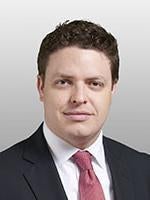Last summer there was much ado about the two parallel efforts of a “Dream Team” of attorneys to “end Super PACs.” Their goal was to get the Supreme Court to overturn the decision of the D.C. Circuit in SpeechNow v. FEC, and similar decisions in other circuits, which led to the creation of Super PACs. Those efforts have continued to move forward, with developments on both fronts last week. However, intervening events have made it increasingly unlikely that the group will achieve its goal via either approach.
The first approach flows through the Federal Election Commission (“FEC”). The attorneys filed a complaint alleging that various donors and Super PACs had made or received contributions in excess of the pre-SpeechNow limits on PAC contributions. However, the FEC has officially recognized since 2010 that SpeechNow makes those limits unenforceable against Super PACs. Press reports indicate that the FEC dismissed the Dream Team complaint based on SpeechNow. Last week the complainants announced their plans to sue the FEC over the decision, on the grounds that it was arbitrary, capricious, and contrary to law. The complainants hope to take this case to Supreme Court. Among various challenges that have always faced the effort, however, there is one glaring new one: the confirmation of Justice Neil Gorsuch. His elevation (instead of Merrick Garland or another Democratic nominee) makes it less likely that the Court would reject the holding in SpeechNow and abolish Super PACs.
In the parallel effort, an aligned nonprofit has been working hard to pass an ordinance in St. Petersburg, Florida that would abolish Super PAC activity in that city. Last week, the ordinance passed a preliminary vote of the city council 5-3. This sets up a final vote in July to pass the ordinance. Having passed once already, it seems likely the ordinance will become law. The city is expecting an immediate lawsuit challenging the ordinance. That lawsuit would theoretically head to the Supreme Court by way of the 11th Circuit, which, unlike many other of the federal appellate courts, has not decided on this SpeechNow issue before. A decision upholding the ordinance would create a circuit split and potentially entice Supreme Court action. However, in the time since the ordinance was first introduced, the 11th Circuit reached a decision in Alabama Democratic Conference v. Broussard that appears to acknowledge that SpeechNow was rightly decided, though it does not directly address the issue. See Ala. Dem. Conf. v. Broussard, 838 F.3d 1057 (11th Cir. 2016), cert. denied sub nom. Ala. Dem. Conf. v. Marshall, No. 16-832, 2017 WL 1427593 (Apr. 24, 2017). This makes a circuit split unlikely, reducing the chances that the Supreme Court would take up the issue via this path. Even if the 11th Circuit upholds the ordinance, the Supreme Court would still likely strike it down as unconstitutional.




 />i
/>i

